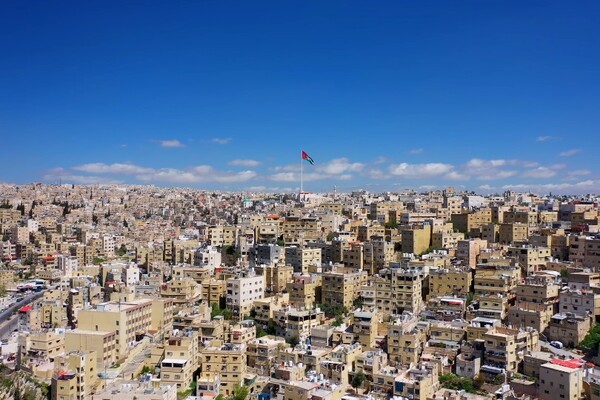Jordan 'safe for tourism' despite proximity to Israel-Hamas conflict
Jordan is "suffering the consequences" of its proximity to the ongoing Israel-Hamas conflict in the Middle East, an Institute of Tourism webinar has heard.
Earlier this week, the Jordan Tourist Board stressed the country’s borders were open, adding it remains "a safe and welcoming destination for tourists from around the world".
Tourism authorities in the country have also urged prospective visitors not to cancel or put off their travel, despite the current geopolitical situation.
“We invite travellers to explore the wonder of Jordan, to connect with our warm and friendly people and to create lasting memories in a nation where the spirit of hospitality has been a tradition for centuries," said the tourist board.
The Foreign Office has updated its travel advice in light of the crisis in the Middle East, stating the political situation in Jordan is stable. It only advises against travel to areas near the country’s border with Syria.
However, experts believe Jordan’s tourism economy is suffering owing to the perception of instability in the region.
Speaking during an Institute of Tourism webinar on Tuesday (31 October), former secretary general of the World Tourism Organisation Dr Taleb Rifai, who is Jordanian, said the country was bearing the brunt of the situation because it neighbours Israel and Palestine.
"We’re suffering the consequences of something we have nothing to do with but we’re now effectively paying the price,” said Rifai.
His comments were echoed by Awni Nasser Kawar, chair of the Jordan Inbound Tour Operation Association, who said the effect of the war on Jordan’s tourism sector has been particularly acute due to October being one of the peak months for tourism to the country.
“We were actually reporting 38% growth in our businesses until 7 October,” said Kawar. “What has happened has hit our sector hard again. There’s always a cloud of uncertainty over the Middle East.”
Jordanian senator and hotel and tourism investor Michael Nazzal added that during times of war, travel costs increase significantly, both in terms of airfares and insurance.
"These increased costs may deter budget-conscious travellers and lead to a decrease in arrivals, which in turn can potentially impact the overall profitability of the tourism industry,” Nazzal said.
Other challenges include the wider economic cost of operating tourist services, including maintaining staff and investing in marketing to stay relevant and control messaging.
Nevertheless, the panel insisted Jordan’s tourism industry would bounce back, highlighting the importance of collaborating with its neighbours post-conflict to ensure long-haul travellers, who typically tour several destinations, can continue to take multi-centre trips.
"If we cooperate when the war ends, we’ll have more tourists than if we sold just Jordan,” said Nazzal.
Sign up for weekday travel news and analysis straight to your inbox

Ilaria Grasso Macola
Supplier Directory
Find contacts for 260+ travel suppliers. Type name, company or destination.















